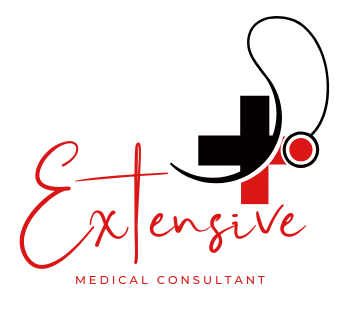By Nayan F
•
November 11, 2025
For individuals navigating life after trauma, reconstructive surgery, or long-term medical procedures, the physical battle often ends long before the emotional one. Scars, depigmentation, or the loss of natural anatomical definition can become daily, visible reminders of the past, profoundly disrupting self-perception and confidence. This is where advanced paramedical tattooing steps in, acting as the crucial, final chapter in the healing journey. It is more than just aesthetic work; it is a blend of medical precision, specialized micro-pigmentation, and meticulous artistic technique dedicated to achieving profound, measurable emotional recovery. The Scars We Carry: Understanding the Psychological Weight A visible mark, whether from mastectomy, surgical revision, or burn injury, is rarely just a patch of skin. For many, it carries heavy psychological baggage that interferes with moving forward: Reliving Trauma: Every glance in the mirror can instantly pull a survivor back to the moment of trauma or surgery, inhibiting post-traumatic growth. Loss of Identity: Procedures like mastectomy often fundamentally alter body image, requiring a visual restoration to reconnect a person with their sense of self and wholeness. Social Isolation: The constant stress of concealment, avoiding certain attire, or fielding intrusive questions can lead to severe social anxiety and isolation. We understand that true recovery is a holistic process. While traditional treatments address the internal and physical aspects, paramedical tattooing provides the essential visual and external closure, giving the patient control over their physical narrative. This act of regaining control is the core of the emotional science behind our work. What is Paramedical Tattooing? The Informed Science Paramedical tattooing is a highly specialized form of advanced micro-pigmentation performed in a sterile, clinical environment. Our goal, as medical tattoo Houston specialists, is not merely artistic design, but functional camouflage, hyper-realistic restoration, and precise pigment neutralization. This requires a deep understanding of dermal layers and pigment retention. The process involves implanting specialized, medical-grade pigments into the upper layers of the dermis to mimic natural skin tones, hair follicles (for SMP), or 3D areolar structure. Key applications where this clinical approach is paramount: 3D Areola Restoration: Utilizing advanced techniques of shadow, highlight, and color saturation to create the hyper-realistic, three-dimensional illusion of the nipple and areola, completing the reconstruction journey for breast cancer survivors. Scar Camouflage: Meticulously matching and neutralizing challenging scars (from trauma, surgery, tummy tucks, or self-harm) to seamlessly blend into the surrounding healthy skin. Scalp Micropigmentation (SMP): Creating the look of natural hair density or a closely shaved head, focusing on follicular realism. The Extensive Medical Consultant Difference: Authority and Empathy In the field of medical aesthetics, expertise backed by public health standards is non-negotiable. At Extensive Medical Consultant, LLC, our commitment to unparalleled patient well-being is led by Dr. Scarlett Lusk. Her extensive background in epidemiology and administration ensures that every procedure is rooted not just in artistry, but in scientific rigor and regulatory compliance. Dr. Lusk’s unique oversight elevates our scar camouflage and 3D Areola work far above standard cosmetic services: Epidemiology-Driven Safety: Drawing upon her public health expertise, Dr. Lusk enforces stringent infection prevention and cross-contamination protocols, guaranteeing the safest, most sterile clinical environment possible a critical distinction in medical tattooing. Advanced Color Science and Longevity: Scar tissue and reconstructed skin have unique vascular and cellular structures that affect pigment retention. Dr. Lusk’s team masterfully custom-formulates pigments, analyzing factors like UV exposure and skin tone history to ensure superior, long-term color stability and natural, undetectable blending. Precision Artistry for Realism: We employ advanced shading and textural techniques to create true illusions of depth and dimension. This precision is the key to a result that is not only covered but genuinely restored. When you choose Extensive Medical Consultant, you are choosing a partner who views your transformation through both a compassionate and a clinical lens, ensuring the most realistic, enduring, and psychologically powerful results available in Houston. Reclaiming the Narrative: Agency and Confidence The most profound outcome of paramedical tattooing is the fundamental shift in perspective. Clients report feeling a heavy psychological weight lifted no longer seeing a constant, stark reminder of a painful past, but instead seeing skin that blends, that heals, and that is whole. This restored sense of physical normalcy facilitates deep emotional healing, boosts self-acceptance, and empowers survivors to re-engage socially and conclude their personal recovery story with confidence. This is the emotional science in action: the aesthetic change that ignites the psychological breakthrough. Ready for Emotional Closure? Your Next Chapter Starts Here. You have completed the difficult work of surviving; now, let us help you complete the visual journey of thriving. If you are ready to take the final, powerful step toward emotional recovery and visual completion, trust the unwavering medical expertise of Dr. Scarlett Lusk and the precision artistry at Extensive Medical Consultant. Do not wait to reclaim your story. We offer confidential, specialized consultations to discuss your unique needs for expert scar camouflage or hyper-realistic 3D Areola restoration in Houston. Take agency over your physical narrative. Book Your Consultation Today.
















